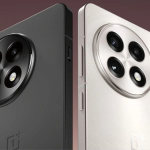In June, Chinese pop-punk singer Wowkie Zhang released a music video where he encounters a virtual character in a hyper-colored, animated world that is reminiscent of Pixar films. The avatar, sporting Gen-Z-styled silver hair, a yellow and black oversize sweat, and baggy pants, makes hip-hop moves to Zhang’s catchy, light-hearted tune.
The virtual character isn’t a one-off creation; instead, Zebra Labs, which produced the video, is turning him into a piece of reusable intellectual property that can be bought as NFTs on marketplaces and appear in other virtual occasions like video games. The startup is waiting for the bull market to return to launch the NFT project, Scarlett Li, founder and CEO of Zebra Labs, tells TechCrunch.
The aim of Zebra Labs is to “create intellectual property that’s deeply integrated with content” and “run virtual idols like celebrities,” says Li. Some of the avatars it creates are based on real-life stars, while others are original characters. To generate revenues, Zebra Labs cultivates an audience for its idols through short films, images, and social posts and in turn monetizes the fan base. It also licenses its virtual idols to partners for a fee.
Here’s Zebra Labs trying to build a fan base for Zookie, who makes a cameo in Wowkie Zhang’s music video, by churning out Douyin (TikTok’s Chinese version) clips of the character:
NFT, which is already being widely used in authenticating IP rights, can be used to better engage fans, reckons Li, who previously helped organize some of China’s largest music festivals. “When you reach 30 years old, you lose interest to explore music, so a virtual environment can jumpstart visualization [of music] again.”
NFTs also give emerging musicians a more direct avenue for income. In China, music distribution is in the grip of music streaming giants owned by Tencent and NetEase. These platforms tend to allocate user traffic to musicians already with a lot of fans, “so to live well as a musician, you need to have a million followers,” says Li. “NFTs can change that.”
As a veteran of music festivals, Li is excited about the prospect of online concerts. She’s benchmarking against Ariana Grande’s Fornite concert, in which the singer descends into a colorful island in her virtual manifestation with a shimmering silver dress and a glowing white ponytail. Zebra Labs is in talks with several gaming firms to launch virtual concerts for Chinese artists inside a Minecraft-like game and a metaverse platform by 2023, Li says.
Zebra Labs recently raised $5 million to advance its metaverse vision. The funding came from the Chinese gaming firm NetDragon and the Japanese conglomerate Sumitomo. Onboarding a Japanese investor, according to Li, can help the startup learn from the country’s long history of IP management, which is exemplified by the success of virtual idols like Hatsune Miku. The company is also backed by SOSV, the VC firm known for its network of accelerators.
Following its collaboration with Wowkie Zhang’s music video, which has garnered some 40 million clicks across an array of online channels, Zebra Labs has five other artists in the pipeline. It’s also planning to release a digital twin of Zhang by the first quarter of 2023.
Zebra Labs raises $5M to help Chinese celebrities enter the metaverse by Rita Liao originally published on TechCrunch



